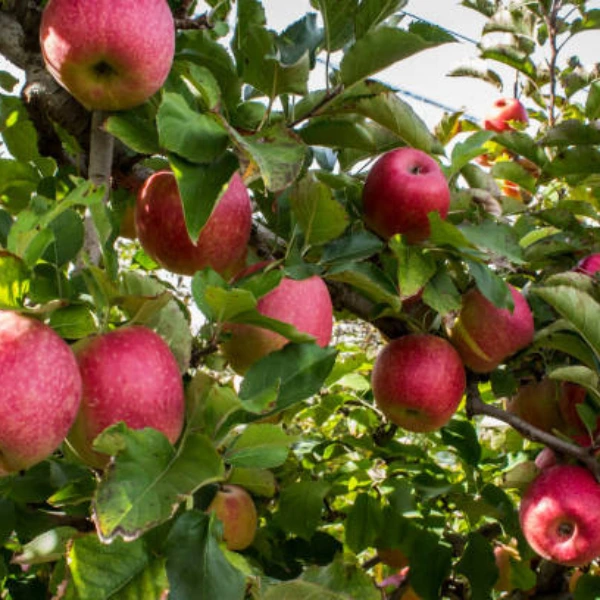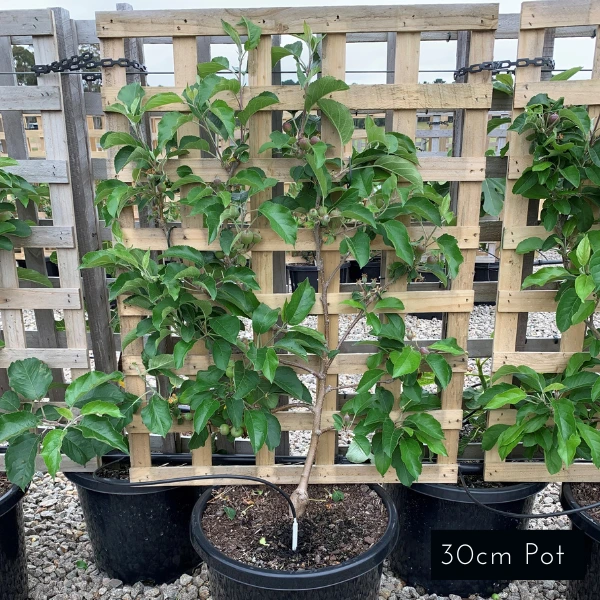Transform your garden into your very own orchard with our Apple Espaliers. For smaller spaces, enjoy Dwarf varieties such as Granny Smith, Gala or Pink Lady. For larger spaces, enjoy double planted varieties. These expertly crafted fruit trees are trained to grow flat against walls or fences, making them perfect for small spaces and creating eye-catching garden features. For best result, we recommend planting two different apple varieties close by, to allow for cross pollination. If your surrounding Neighbours have any apple trees, you can then simply allow hard working bees to take care of this for you. If you are selecting a double planted espalier, all the hard work is done for you, with no second variety required.
Product Specifications
- Common Name: Apple Espalier
- Form / Habit: Upright
- Evergreen / Deciduous: Deciduous
- Position: Full Sun
- Soil Type: Well-draining well-fertilised soil
- Water needs: Medium, keep well watered during warmer months, with a layer of mulch
- Planter suitability: Yes
- Maintenance: Low -Medium
- Pollination requirements: Close range to other apple varieties to allow for cross pollination
- Fruit production: Consider protecting ripening fruit from local wildlife
Commonly Asked Questions
How do I look after my Apple Espalier?
Espaliered fruit will continue to grow beyond the current lattice. You can snip off the existing lattice to attach a larger lattice or an additional one. Espaliered fruit grows well along guide wires also. Plants can also be pruned back to smaller sizes to suit compact gardens.
How do I get my Apple Espalier to produce delicious fruit?
Apples need water while they are young and establishing; however well, draining soil is necessary. As the plant matures, the water needs will decrease. A well-hydrated plant will produce juicy fruit. The location of the Espalier is especially important, as stone fruit will prefer a full sun location. Look into disease prevention to ensure your plant is healthy and use a gentle fertiliser suitable for apples. Good draining is also necessary, as apples don’t like wet roots. A layer of mulch will also help keep the moisture in the soil. Pruning will also encourage good apple production. Apples and Pears require two different varieties to be planted either in the same garden or in neighboring gardens, this will encourage the bees to cross pollinate and the plant to product juicy and delicious fruit.
When do Apples produce fruit?
It can take a good couple of years for stone fruit to produce their first crop of fruit; be patient and look after your plant’s health, and you will be rewarded. Apples produce fruit in Autumn.




